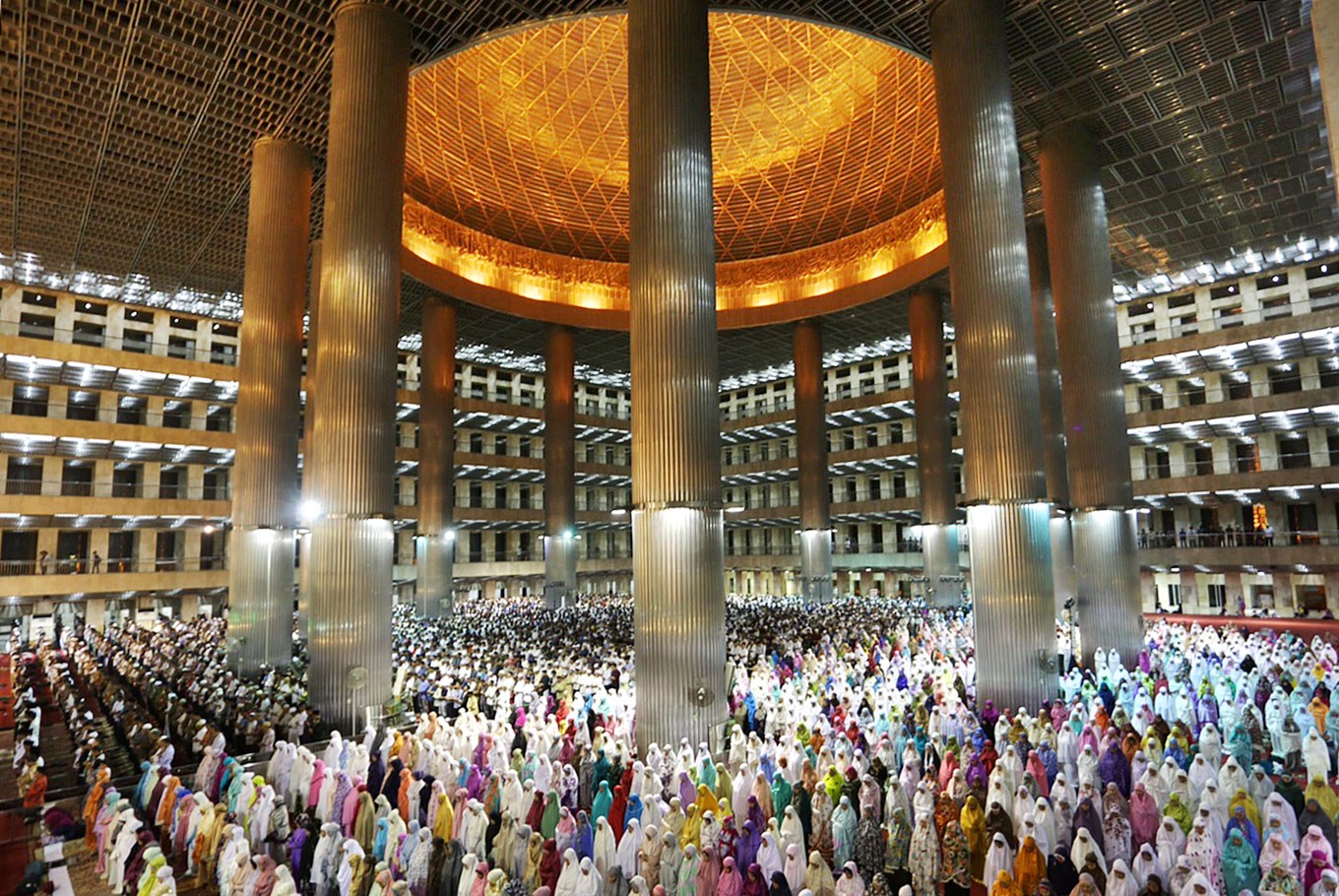Popular Reads
Top Results
Can't find what you're looking for?
View all search resultsPopular Reads
Top Results
Can't find what you're looking for?
View all search resultsRadical sermons widespread in government offices
Of the 41 mosques that have spread radical ideas, 21 were at state-owned company buildings, eight at state agencies and 12 at ministry buildings.
Change text size
Gift Premium Articles
to Anyone
T
he government must look at its own backyard to continue the fight against radicalism as a recent study found that dozens of mosques at government offices in Jakarta have been promoting extreme Islamic teachings.
The Association of Islamic Boarding School and Society Development (P3M) and Rumah Kebangsaan discovered that 41 of the 100 mosques in government ministry, state agency and state-owned corporation (BUMN) complexes in Jakarta have had radical teachings espoused during Friday sermons.
Of the 41 mosques that have spread radical ideas, including the creation of khilafah (caliphate), 21 were at state-owned company buildings, eight at state agencies and 12 at ministry buildings.
The study was conducted from Sept. 29 to Oct. 21 last year by analyzing 274 video and 357 audio recordings taken by volunteers.
“We defined radicalism as ideas that called for fundamental changes [to the government] without concern for different groups,” head researcher Agus Muhammad of P3M told reporters during a press conference at the Nahdlatul Ulama (NU) headquarters in Senen, Central Jakarta, on Sunday.
Agus said the study indicated that the government paid little attention to the mosques in their buildings, which might have resulted in radicalized thinking among civil servants and their circles.
“Mosques [in government-owned buildings] should be free from radical thoughts and ideologies,” he said.
He urged the Indonesian Mosques Council (DMI) to heed the warnings from the study and conduct in-depth research on the findings to counter radicalism in mosques.
“We also wish that NU, Muhammadiyah, and other organizations that hold moderate Islamic views will be more active in preaching at government-owned building mosques,” he said, adding that otherwise hardliners would fill their absence.
However, Agus emphasized that the study only indicated that mosque-goers had been exposed to radicalism. It could not conclude whether mosque-goers had been radicalized as it only observed Friday sermons.
Rumah Kebangsaan director Erika Widyaningsih said the groups decided to share their findings following recent statements from officials denying any presence of radical teachings in mosques.
However, the groups refused to disclose the names and locations of the 100 mosques, saying they did not want to cause a commotion.
“We are open to discussions if anyone feels that this [study] is offensive. We have the data [on the mosques] and we are ready [to reveal them at request privately],” Erika told The Jakarta Post.
The study results were not initially intended for public release.
However, Alissa Wahid, the eldest daughter of late president Abdurrahman “Gus Dur” Wahid and national secretariat coordinator of GUSDURian, a network of people who admire the legacy of her father, conveyed the findings during a closed door meeting with President Joko “Jokowi” Widodo at the State Palace in June.
Alissa confirmed to the Post that she had conveyed the study results to the President without any intention of public release.
“We thought that the findings should be handed over to the government as an unpublished report. When the opportunity arrived, I told the President,” she said on Sunday.
The results were then leaked to Jakarta leaders and the media.
Jakarta Deputy Governor Sandiaga Uno said the administration would take measures to rein in radicalism following the report.
Jakarta Governor Anies Baswedan, on the other hand, disputed the results and demanded that anyone who made the claims provide evidence.











